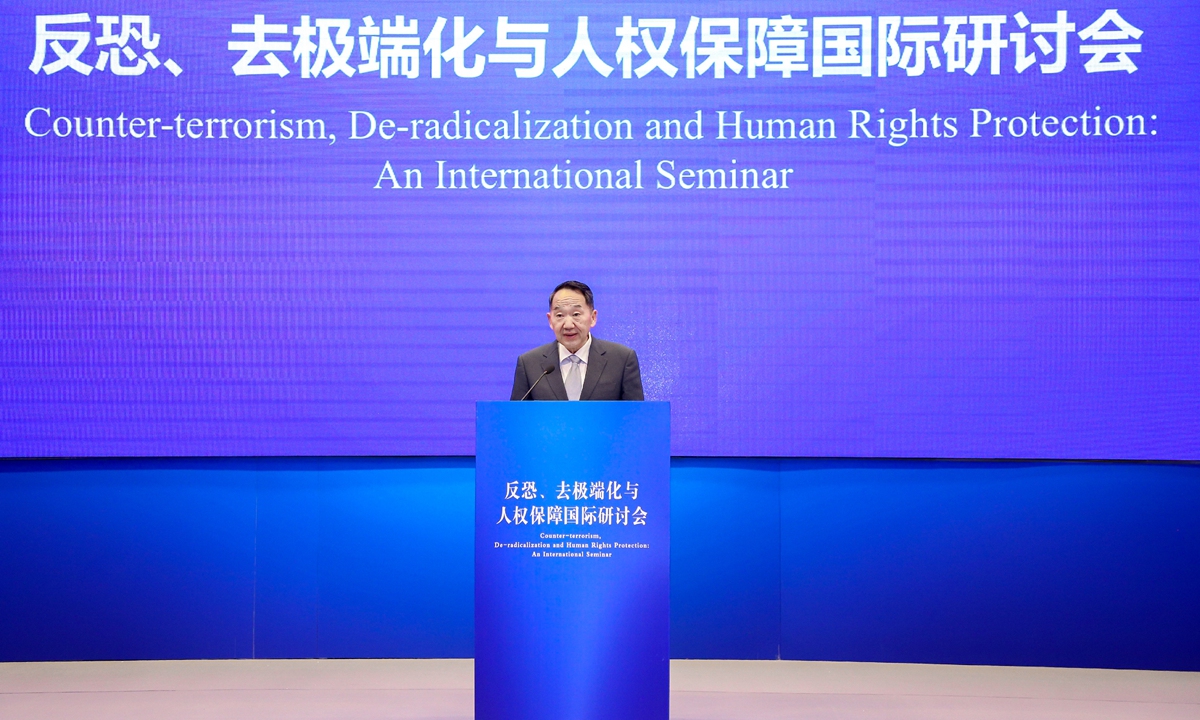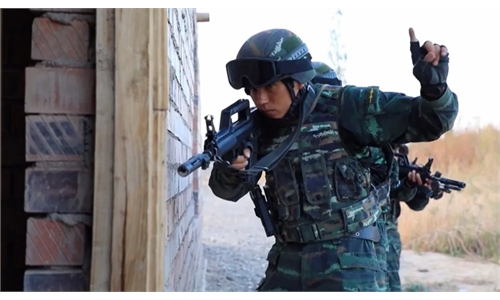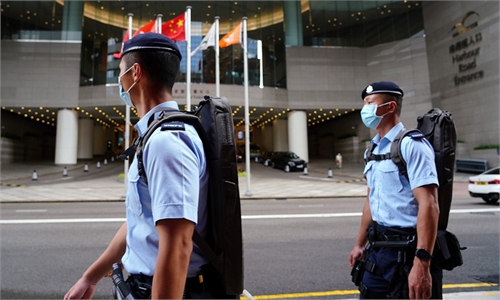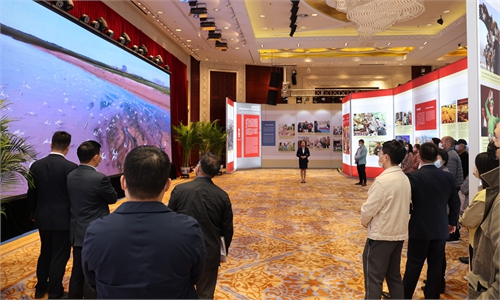International seminar on counter-terrorism highlights necessity of abandoning double standards

Jiang Jianguo, vice minister of the Publicity Department of the Central Committee of the Communist Party of China, addresses the Wednesday seminar.
How double standards that are adopted by some countries affect global anti-terrorism work, why it is untenable to accuse China of committing "genocide" of ethnic groups in Xinjiang and how should the world undertake joint work to fight terrorism… these were the heated topics discussed at an international seminar held in South China's Guangdong Province on Wednesday with domestic and foreign scholars attending in person and via video link to express their views on counter-terrorism and human rights protection.
The international seminar, titled "Counter-terrorism, De-radicalization, and Human Rights Protection," was jointly held by the China Society for Human Rights Studies, the Information Office of Guangdong Province and Jinan University. It started on Wednesday in Guangzhou with nearly 100 experts from across China and overseas joining in.
Experts from more than 15 countries, including the US, Germany, the UK, Pakistan, the Philippines, Canada, Kyrgyzstan and Singapore attended the Wednesday seminar.
"Twenty years ago, the September 11 terrorist attacks shocked the world and it was like yesterday. All the details still come back clearly, and the scars left on the world are indelible. Terrorism, using absolute, extreme, indiscriminate violence… puts human society into great terror and panic… is an absolute crime against humanity, society and civilization," Jiang Jianguo, vice minister of the Publicity Department of the Central Committee of the Communist Party of China, said at the seminar.
For the past 20 years, the global challenges posed by terrorism reached an unprecedented level, and fighting terrorism has become a consensus of the international community. There is still a long way to go for global counter-terrorism work, Jiang said.
However, based on ideological bias and short-term interests, some countries choose to counter terrorism selectively, which hinders the global anti-terrorism work, Jiang noted.
Jiang made some proposals in promoting global work in fighting terrorism, including abandoning double standards, eradicating extremism at the root, abiding by laws and protecting human rights, and avoiding discrimination while countering terrorism.
Agreeing with Jiang, many foreign experts who attended the Wednesday seminar talked about double standards adopted by some countries as well as their tactics of politicizing human rights topics for geopolitical gains.
Mushahid Hussain Sayed, chairman of Pakistan's Senate Defense Committee, said at the opening ceremony that the Wednesday seminar is being held as the topics of counter-terrorism, de-radicalization and human rights protection are becoming more important while sadly, they have been politicized due to the Western world's moves and political interests.
Human rights topics are not about principles but have become political weapons for some countries to suppress other countries that do not work for their interests. Some Western countries have adopted double standards when evaluating China's effective counter-terrorism measures in its Xinjiang region and the US' killing of civilians in Afghanistan, Sayed said.
Sayed said that we know all the problems and also the victims who bear the harm brought by the problems. This is why we need to have our own "narratives" and adopt our own methods in de-radicalization and fighting terrorism.
Topics on China's Xinjiang also drew heated discussion during the seminar, as the Xinjiang region is the main battlefield for China's counter-terrorism work, and it has been under increasing attack from a smear campaign led by the US over the untenable accusations of "forced labor" or even "genocide."
William A. Schabas, a professor of International Law at Middlesex University of London, said at the seminar that allegations of genocide related to China's treatment of its minority in Xinjiang are "unjustified" and "weak."
He said via video link that the US Department of State accused China of committing "genocide" in a report but "nowhere does it attempt to explain the legal or factual basis for such a claim."
"This is extraordinarily superficial, and about as credible as [former US president] Donald Trump's hints that China had manufactured the COVID-19 pandemic. Its treatment of the subject only reinforces the impression that the genocide allegation is being weaponized by the US in pursuit of economic and military objectives," said Schabas.
He said that "Taken as a whole, only a very weak case for genocide under international law has been made out. This may be enough to convince parliamentarians and diplomats in the West who seek opportunities to stigmatize China. But it could never ever succeed in a court of law."
Other topics discussed during the Wednesday seminar included the current global counter-terrorism situation, studies of Xinjiang's counter-terrorism measures and the media's role in breaking double standards.




